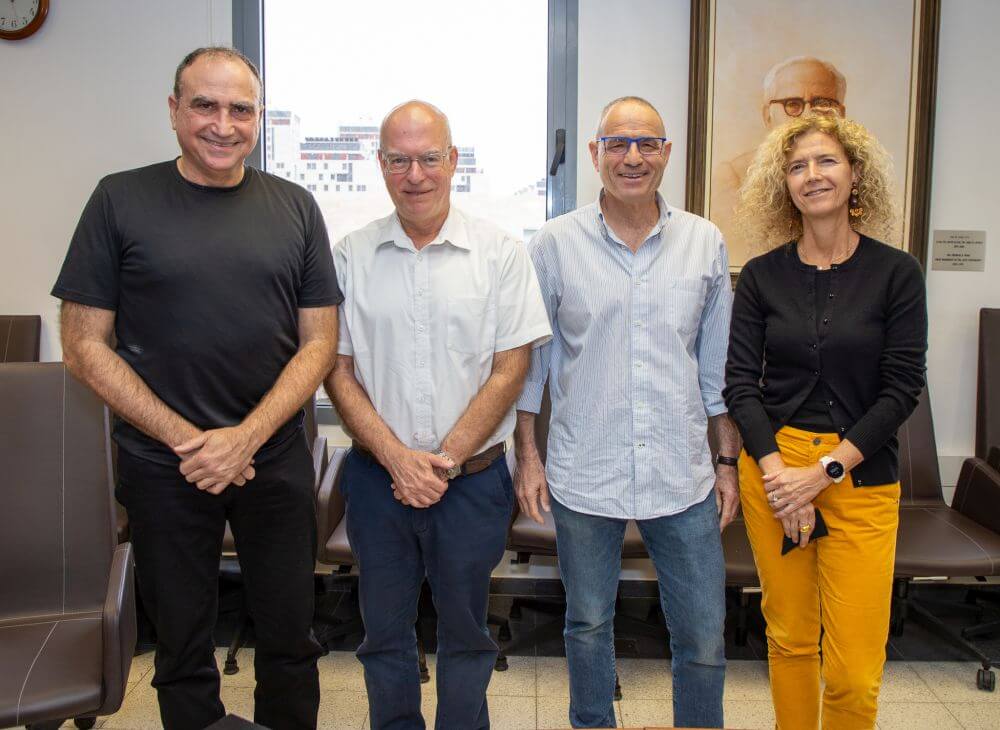The aim of the AI for Social Good program is to support research and collaborations in the fields of data science and artificial intelligence that can help and advance humanity in social issues that are on the agenda

Google and Tel Aviv University recently launched a program to promote and leverage multidisciplinary research related to artificial intelligence - on topics that may benefit the community and have a positive impact on society as a whole. The purpose of the program is to support research and collaborations in the fields of data science and artificial intelligence that can help and advance humanity in social issues that are on the agenda. The program is being launched as part of the new interdisciplinary center established last February at Tel Aviv University (TAD) led by Prof. Meir Feder, from the Ivy and Alder Fleishman Faculty of Engineering.
At the ceremony to launch the three-year program, which was recently held at Tel Aviv University, ten proposals were announced that won the joint vote of Google and Tel Aviv University out of 27 proposals that were submitted, with Google supporting seven of them. The researchers, the winners of the grants, engage in their research in diverse aspects of AI for the benefit of the community. Among the winners - researchers in the field of zoology (faculty of life sciences), electrical engineering, economics, statistics, communication disorders (school of medicine), Bible, earth sciences and computer sciences, sociology and anthropology and more.
Prof. Ariel Porat, the president of the university whose goal is to establish "bridges" between different fields of knowledge studied at the university, stated on this occasion: "I share a common vision with Prof. Yossi Matias, according to which AI researchers may benefit from the partnership with researchers in the social sciences and the humanities, as that social science and humanities researchers benefit from developments in the field of AI. I am happy about the partnership with Google, look forward to seeing the fruits of the partnership and hope to deepen this partnership in the future."
Prof. Yossi Matias, Vice President at Google and CEO of the Google Center in Israel spoke about AI technologies and how they are already dramatically improving the reality of our lives: "AI already has a considerable impact in various fields. We are happy for the opportunity to harness the power of AI for the benefit of the community (AI for Social Good) and for the benefit of science and the ability to work at Google on useful and even life-saving products, such as a worldwide project for accurate flood prediction, technology that allows the hearing impaired to conduct phone calls and research have a real potential to help in improved diagnosis of diseases through artificial intelligence".
Prof. Matias thanked Prof. Porat, Prof. Meir Feder, head of the TAD Center, and all the partners in establishing the project, referred to the special opportunity in creating collaborations between researchers and noted that he is a great believer in the connection between different disciplines: "There are deep and fascinating research questions in topics related to artificial intelligence in the fields different and diverse and there are considerable opportunities for collaborations. Good things happen when connections are made between different ideas and different approaches."
The joint venture will also include the establishment of a joint machine learning (ML) seminar that will be led by Dr. Shimon (Moni) Shahar, director of TAD and Dr. Debi Cohen, a scientist at the research center of the Google Center in Israel.
Prof. Meir Feder emphasizes that "the AI revolution is expected to affect all lifestyles from drug planning and data-based personalized medicine, to defense and security systems, financial systems, scientific discoveries, robotics and autonomous systems and social issues. In addition, it is very important to train human capital in the field and therefore the center will provide basic education in the field for every student studying at the university. Tel Aviv University is special in that it also has researchers whose main occupation is artificial intelligence and basic science, but also scientists who integrate artificial intelligence into their research fields in the humanities and social sciences. We are happy that Google decided to join forces with the university on this important issue. According to him, the cooperation with Google will make it possible to utilize the power inherent in the use of artificial intelligence and data science to channel it from the company's point of view.
More of the topic in Hayadan:
- The Technion sold gene mapping software developed by the researchers of the Faculty of Computer Science
- The Corona: a research grant from Google to Uni' Tel Aviv, which also won a tender for testing in the IDF
- Without artificial intelligence it is impossible to deal with a million new scientific articles every year
- The Montreal Declaration: Why we must develop artificial intelligence responsibly
- The trial of the century - Sofia 9880
